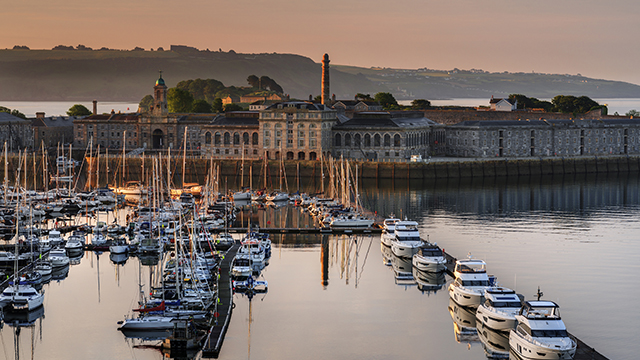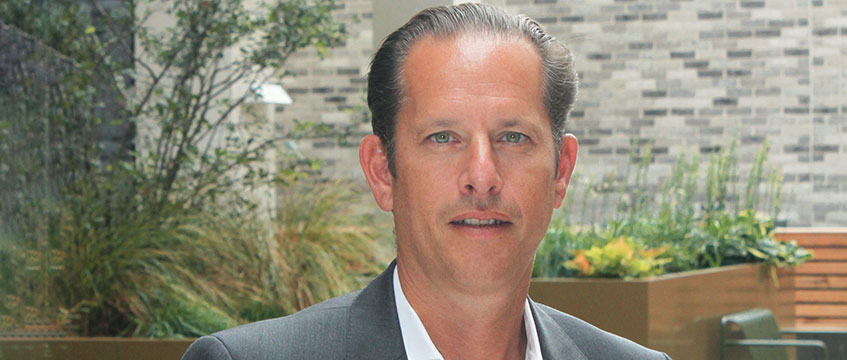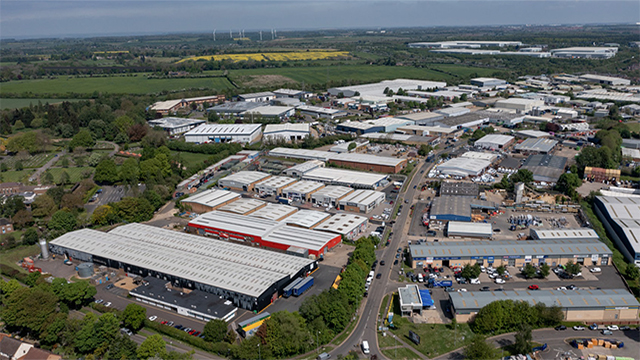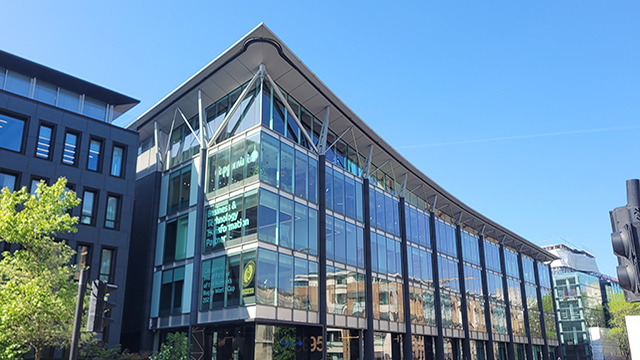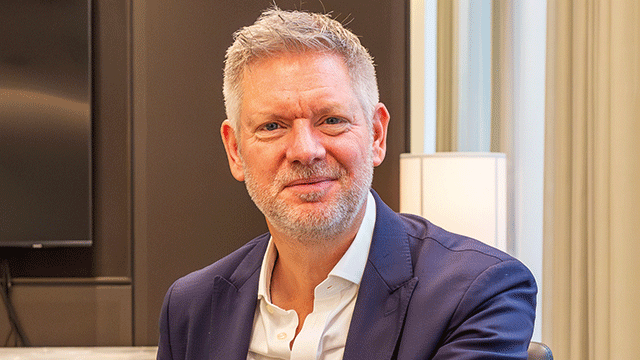The EG Interview: Regal London’s brave new world
If, seven years ago, someone had told Jonathan Seal that he would one day be chief executive of a real estate developer with mixed-use schemes across London, then by his own admission he would have laughed.
A 20-plus year career had by that point ensured Seal was well-versed in law, corporate finance and private equity, but he had no direct experience of property. And yet in 2016 he took a non-executive directorship at Regal London, a company with projects in parts of London as diverse as Kensington and Tower Hamlets, Barnet and Shoreditch. The following year he was named managing director and, in the summer of 2020, became chief executive.
It might just be his toughest role yet. “People really hated me as a lawyer,” he tells EG. “Imagine what they thought of me as a banker. Imagine what they thought of me as a private equity investor. This is the worst hat to wear, in real estate! People think, rightly or wrongly, that we are there to get planning [for a project], flip it, make money, and that’s what we are all about. We have to spend every single breath that we have to explain that, yes, we are a company and a company is there to make profit, but we are here to make change.”
If, seven years ago, someone had told Jonathan Seal that he would one day be chief executive of a real estate developer with mixed-use schemes across London, then by his own admission he would have laughed.
A 20-plus year career had by that point ensured Seal was well-versed in law, corporate finance and private equity, but he had no direct experience of property. And yet in 2016 he took a non-executive directorship at Regal London, a company with projects in parts of London as diverse as Kensington and Tower Hamlets, Barnet and Shoreditch. The following year he was named managing director and, in the summer of 2020, became chief executive.
It might just be his toughest role yet. “People really hated me as a lawyer,” he tells EG. “Imagine what they thought of me as a banker. Imagine what they thought of me as a private equity investor. This is the worst hat to wear, in real estate! People think, rightly or wrongly, that we are there to get planning [for a project], flip it, make money, and that’s what we are all about. We have to spend every single breath that we have to explain that, yes, we are a company and a company is there to make profit, but we are here to make change.”
And what a period in which to take on a new challenge. Seal’s time leading the business has so far been spent navigating Covid-19, the fallout from Russia’s war in Ukraine and now inflation and the cost-of-living crisis. Or, as he more colloquially puts it, “the three Ps – pandemic, Putin and pounds”.
“Throughout my entire career I have never really experienced such difficult economic headwinds for the UK economy as we have seen in the past five years,” Seal says. But if he is wary of what happens next, he is not showing it. “I am convinced that our business model of being in control of the entire life cycle of an asset means that, actually, we are able to continue to build and grow our business despite what’s going on around us,” he adds. “We focus on the micro – we focus on the business plan for that particular scheme and opportunity.”
Rolled-up sleeves
A veteran of the 2008 financial crisis, Seal knows his way around a downturn. Nonetheless, the Covid-19 pandemic meant he was thrown in at the deep end when he took the CEO post at Regal London. In his first few months at the helm of the company, Seal focused on ensuring that all of the company’s construction sites could remain open.
“We are a privately owned company founded by two guys, with 125-plus staff,” he says. “We have no one that helps us. We don’t have a £1bn balance sheet. We must make sure that all of our staff get paid every day. We have to deal with the same challenges that everyone else has to deal with. Covid is the perfect example.”
Unable to access the financial support that would have allowed the company to furlough staff, Seal and colleagues “had to keep going”, the chief executive says.
“We used that entrepreneurial spirit. We rolled our sleeves up. We made sure that, to the best of our ability, none of our sites closed. That meant implementing the level of standards and health and safety and everything that was required to keep our sites open. We had to do that because if we didn’t, and our wheels stopped and our financing stopped, our business would have come to an end. We didn’t complain about it – we just got on with it and we did it.”
Seal has known Regal London’s Paul Eden and Simon De Friend, who co-founded the company two decades ago, for years, and has “seen the Regal story from afar”. When they asked him to use his corporate finance and capital markets background to help them review the business’s strategy, the company was focused on high-end residential schemes. Seal was particularly struck by the founders’ decision to develop an in-house construction capability after being let down by a contractor.
“Only entrepreneurs who are brave would go ahead and do something like that,” he says. As the business built up its sales capability, it opened an office in Hong Kong. “I look back and think, well, without them probably quite realising it, what you have here is basically almost an integrated business. But like any business, as it grew they needed the right people, the right systems, the right processes to try and bring glue to both the business and the entrepreneurs.”
A newcomer to the industry, Seal saw the real estate market stuck in the way it wanted to do things and chose to encourage Regal London down a different path. “Why are we just focused on residential beds?” he asked. “Why can’t we deliver any type of bed, whether it’s a student bed or a hotel bed? An aparthotel bed? An affordable bed? And if we have got this great skill set, what about bringing that brand, that product more into the mid-market?”
Seven years later, Regal London has moved from being solely residential focused to handling residential-led mixed-use developments, with a pipeline portfolio of 8,500 homes, £4bn GDV in its contracted pipeline and 650,000 sq ft of commercial space the company will be delivering over the next year.
Seal points to a project such as its Shoreditch Exchange site as “a true mixed-use scheme”, comprising 184 homes, on-site amenities such as a gym and cinema room, shops, cafés, restaurants and 350,000 sq ft of commercial space.
London will remain the company’s focus, Seal says, not least because the three top members of its team are Londoners. “The great thing about London is it continues to regenerate in different areas, whether it’s Shoreditch or what we are doing in London Fields, from east to west, north to south… London still shines to this day as one of the greatest capital cities in the world. I don’t think there will ever be a moment where we say, ‘We haven’t got enough work to do in London, we should be going to Manchester.’ I just don’t think that’s ever going to happen.”
We have to spend every single breath that we have to explain that, yes, we are a company and a company is there to make profit, but we are here to make change
The draw of disruption
Seal now wants Regal London to continue showing the same bravery and innovation that he saw in its founders when he joined the business. This year the company backed a £10m series A funding round for Modulous, which runs a digital platform that aids companies with offsite construction.
“I’ve always felt that, in any industry, technology can be used to improve the industry and space as a whole,” Seals says, but adds that too much proptech has “failed to disrupt”. Modulous, he says, offers something different.
“They believe – and I absolutely, passionately believe – that the warehouse model doesn’t work,” he says. “I believe the idea that you can build houses in factories is very, very difficult to achieve. Modulous’s idea is that that business model doesn’t work – it’s so capital intensive, and the amount of product needed to get through that has become so rigid that, ultimately, it doesn’t work.”
With Regal London’s investment in the proptech company, the physically integrated business will have access to an integrated digital business that allows it to better understand its sustainability metrics and shrink the land evaluation time process. “That is disruptive,” he says.
Alongside sustainability, diversity is top of the agenda for Seal. It’s an area in which he knows Regal London has work to do: “We have an industry that is very much male-dominated. We have a male board. In the development business we have 50% female, 50% male, but we have more men sitting in certain pockets of the business and more women in other pockets. We look at our construction side and only about 16% of all construction staff are female.”
Regal London appointed Ghislaine Halpenny to its board this year as director of ESG and corporate affairs. However, Seal is adamant that diversity for diversity’s sake is not the goal. “[I said] I’m not recruiting you because you’re a woman, I’m recruiting you because you’re the best person for this job and I really want you to be here. And so Ghislaine has helped us start on that journey.”
Development of the company’s EDI policy is underway. “When we get to the end of that process, we will have a vision of what it means to Regal and how we want to operate the business going forward and the environment we have.”
Like much of navigating the market right now, it is a work in progress – as a business, you live and learn. Seal says: “Part of what we are quite proud of is that, of course we are going to make mistakes, but we are brave enough to take on things on our own, in the way we go about doing it.”
To send feedback, e-mail akanksha.soni@eg.co.uk or tweet @AkankshaEG or @EGPropertyNews
Photo © Regal London





